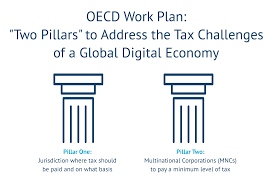
Crypto currency and its regulation — Overview
INDIA'S CRYPTO POLICY
What is Crypto Policy?
Crypto policy means the rules, laws, and government stance on how cryptocurrencies (like Bitcoin, Ethereum, stablecoins, etc.) and related activities (trading, exchanges, payments, mining, taxation) are allowed, restricted, or supervised in a country. It usually covers: Legality, Regulation, Taxation, Anti–money laundering and “know your customer” rules, Financial stability and also Innovation vs. risk i.e, How much the government encourages blockchain innovation while preventing fraud, tax evasion, or systemic risks.
A Broad overview of India's Crypto Regulation
India as ever has been very cautious regarding its crypto policy. The government indicates it does not want to fully regulate crypto in a way that might give it “legitimacy” or make it deeply embedded in the mainstream financial system. Instead of full regulation, there is some oversight already
Crypto exchanges (especially global/offshore ones) must register with India’s Financial Intelligence Unit (FIU)
Anti-money laundering rules apply
gains from “virtual digital assets” are taxed (30%) and there’s a TDS (tax deducted at source)
Review of the Current Aspects
Further there is aldready an ongoing review by the Authorities by asking stakeholders for feedback. The CBDT has sent out questionnaires to exchanges and crypto service providers in regard to the current tax rates as well as the rules and regulations assosciated.
Concerns & risks listed
Some of the reasons cited for delaying full regulation or legislating crypto more strictly include:
-
Systemic risk concerns: Regulators, especially RBI, feel that if cryptocurrencies become “legitimized” or more deeply connected to banks/financial intermediaries, they could pose risks to the financial system
-
Stablecoins: India is particularly cautious about U.S.-dollar pegged stablecoins, worrying that wide adoption might fragment its own payment systems (e.g. UPI) or reduce control over the domestic payment architecture.
-
Regulation limitations: The documents suggest that even strict regulation can’t prevent peer-to-peer and decentralized exchange trades, which are harder to track. So regulation might only partially help.
India currently does not have a full fledged regulation providing a legal framework for the crypto currency dealings within its territory, nevertheless it has imposed strict rules and taxation regimes and is constantly working towards its Crypto Regulation. India is also further rising its enforcement through various coming age tools like AI tools, tax probes, and compliance checks are also expanding.
Consult with A2consultants to explore our indepth knowledge and insight on Crypto Currency
A2consultants Indian Business Companion is also available on ChatGPT, making it more accessible for Professionals, Businesses, and Foreign Entities seeking insights into the intricate tax challenges you can acess from this link
Book a Free consultation
https://chatgpt.com/g/g-6865f276fc1c8191b467aa48f145a369-a2consultants-india-business-companion.
Scan Here to Know More with ChatGPT




